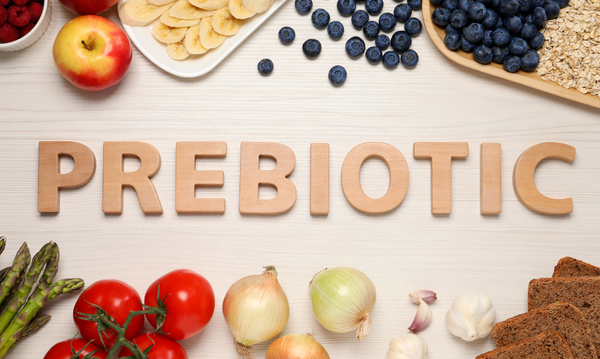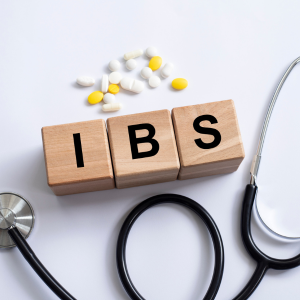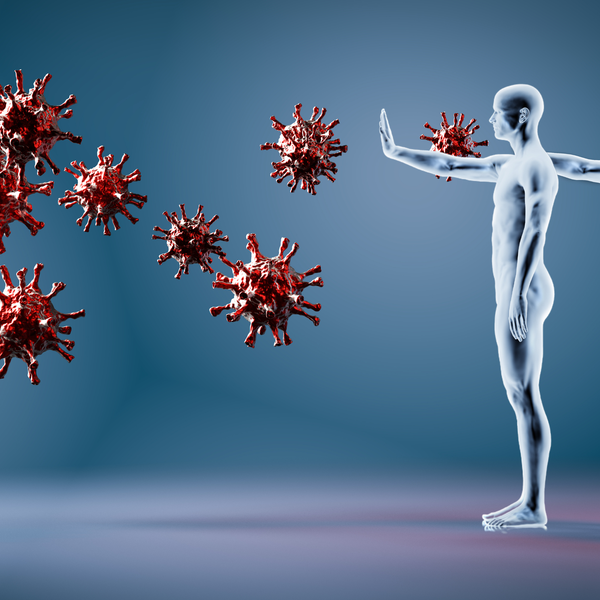Overview of the Science behind Bimuno®
Research on how the gut microbiome can be modulated through exogenous strains of beneficial bacteria (probiotics), has been well documented.
The effects of stimulating endogenous bacteria through consumption of dose-controlled prebiotics are arguably less well known.
Clasado has published human clinical trials on the prebiotic Bimuno® since 2008 and to date has over 100 scientific publications including over 20 clinical trials.
The research journey started at the University of Reading, UK by demonstrating how beneficial endogenous bacteria can be selectively grown in the colon using the galactooligosaccharides (GOS) contained in Bimuno®.
Bimuno® (also in publications referred to as B-GOS®) is shown to beneficially affect the human gut microbiome through its selective stimulation of bifidobacteria. The growth of good bacteria in the gut has been repeatedly demonstrated in studies in healthy adult populations[1],[2],[3] individuals with IBS[4],[5],[6] and obese adults.[7],[8]
Human research has demonstrated the effect of bifidobacteria and associated metabolites on the gut microbiome, the host and the resulting influence on digestive health, immune health and cognitive health.

Digestive Discomfort
Bimuno® has been shown to reduce the physical effects of digestive discomfort.[1][2][3][4]
Clinical research using Bimuno® has shown that it reduces flatulence, bloating and abdominal pain in individuals who experience gastrointestinal discomfort and leads to a significant reduction in urgency.[2] Bimuno® also has a positive effect on improving bowel habits in individuals with IBS[4] and maintaining regularity in healthy individuals.[5]
It's important to note that by specifically targeting gut bifidobacteria (which do not contribute to gas production), Bimuno® does not lead to increased gas[6], which could be a concern for some individuals.
People who experience digestive discomfort are often advised by nutrition professionals to temporarily follow a restrictive diet which avoids fermentable (FODMAP) foods. Whilst this approach often yields short term benefits, a low FODMAP diet has a number of challenges as it can alter the gut microbiota, impact nutrient intake and diet quality, is complex to understand, requires the patient to be adequately supported to follow the diet accurately and safely, and lastly, not all patients respond to the diet.[1]
People who experience digestive discomfort respond more favourably to Bimuno® GOS[2],[7] compared to inulin type prebiotics which may aggravate gastrointestinal symptoms.

Immune function
Immunity can be affected by lifestyle, stress, poor nutrition and it also changes as people age. Particularly with ageing, the decline of immune function - so called immunosenescence - may start to play a bigger role and can affect all parts of the immune system making a person more prone to getting ill.
Bimuno® provides diverse benefits to the immune system. It improves immune resilience in the elderly [1],[2], improves low-grade chronic inflammation in the overweight[3] and decreases asthma-associated pro-inflammatory cytokines.[4] Bimuno® has shown to increase the level of anti-inflammatory cytokines and decrease the level of proinflammatory cytokines.
As many athlete’s experience GI problems and exercise-induced asthma, application of Bimuno® to a physically active population could be advantageous. In addition, typically many athletes follow a high-protein, low-fibre diet so supplementation of Bimuno® could help bridge the fibre gap.

Behaviour, mood and cognition
Modulation of the gut microbiome has also been demonstrated to affect behaviour, mood and cognition through the gut-brain axis. Bimuno® supplementation has been shown to reduce stress through decreasing cortisol levels in healthy individuals [1], impacting on their attention and mood.
In another study involving autistic children, supplementation with Bimuno® led to significant improvements in social skills [2]. In an IBS cohort, Bimuno® supplementation reduced anxiety and improved quality of life [3].

Travellers' Diarrhoea
Studies have shown that Bimuno® reduces the adhesion of pathogens to gut cells and increases certain internally secreted substances to prevent invasion of pathogens. This strongly suggests a positive effect by Bimuno® on the innate immune system. This effect is reflected in studies[1],[2] where Bimuno® was shown to reduce incidence of diarrhoea caused by pathogens.
References
- Depeint et al., American Journal of Clinical Nutrition, 2008; 87(3):785-91.
- Vulevic et al., American Journal of Clinical Nutrition, 2008; 88(5):1438-46.
- Vulevic et al., British Journal of Nutrition, 2015; 114(4):586-95.
- Silk et al., Alimentary Pharmocology and Therapeutics, 2009; 1;29(5):508-18.
- Huaman et al., Gastroenterology, 2018; 155:1004-1007.
- Wilson et al., American Journal of Gastroenterology, 2020; 115(6):906‐915.
- Vulevic et al., Journal of Nutrition, 2013; 143(3):324-31.
- Sergeev et al., Nutrients, 2020; 12(1): E222.
- Silk et al., Alimentary Pharmocology and Therapeutics, 2009; 1;29(5):508-18.
- Vulevic et al., Neurogastroenterology and Motility, 2018; 30:11.
- Huaman et al., Gastroenterology, 2018; 155:1004-1007.
- Wilson et al., American Journal of Gastroenterology, 2020; 115(6):906‐915.
- Drakoularakou et al.,European Journal of Clinical Nutrition, 2010; 64(2):146-52.
- Mego et al., Neurogastroenterology Motility, 2017.
- Wilson et al., American Journal of Clinical Nutrition, 2019; 109(4):1098-1111.



















